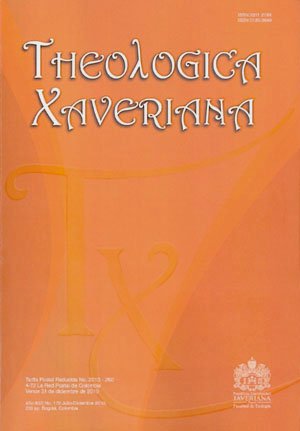Abstract
From the starting point of a consensus on global ethics, it is wondered which are the conditions for such ethics, based on the Good Samaritan parable. (Luke 10, 25-37). In the context of this parable we can identify the necessary elements in order to define a global ethics, regarding also the thought of the philosophers Levinás and Cortina, which serves as a basis for a phenomenological reading of the parable. This way, new conceptualizations about life styles can be made, lifestyles represented by the different characters that play a
role in the parable, whether real or fictional. Thus, we confirm the existence of a relation between global ethics and the parable, because the later is proposed a an ethics of maxims, from Neo-TestamentaryAretology to the axiological visualization leading the way to the affirmation of an eschatological life also initiated in the earthly life.
This journal is registered under a Creative Commons Attribution 4.0 International Public License. Thus, this work may be reproduced, distributed, and publicly shared in digital format, as long as the names of the authors and Pontificia Universidad Javeriana are acknowledged. Others are allowed to quote, adapt, transform, auto-archive, republish, and create based on this material, for any purpose (even commercial ones), provided the authorship is duly acknowledged, a link to the original work is provided, and it is specified if changes have been made. Pontificia Universidad Javeriana does not hold the rights of published works and the authors are solely responsible for the contents of their works; they keep the moral, intellectual, privacy, and publicity rights.
Approving the intervention of the work (review, copy-editing, translation, layout) and the following outreach, are granted through an use license and not through an assignment of rights. This means the journal and Pontificia Universidad Javeriana cannot be held responsible for any ethical malpractice by the authors. As a consequence of the protection granted by the use license, the journal is not required to publish recantations or modify information already published, unless the errata stems from the editorial management process. Publishing contents in this journal does not generate royalties for contributors.


